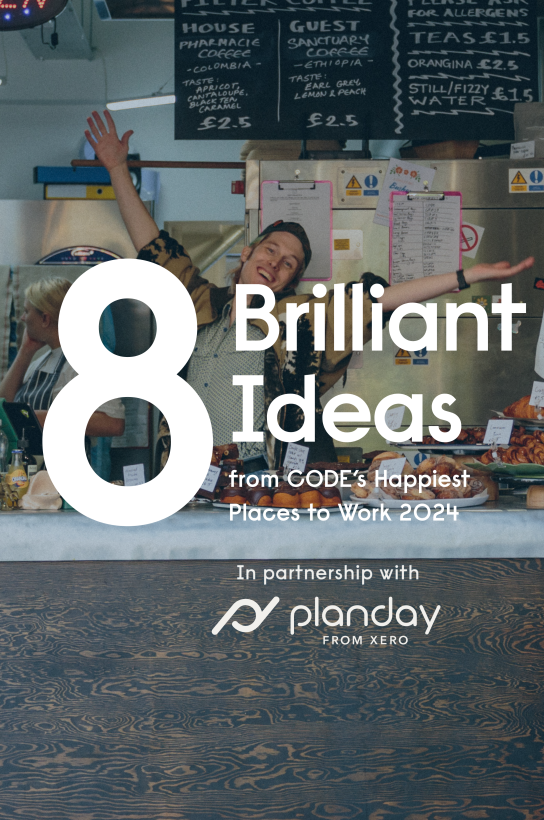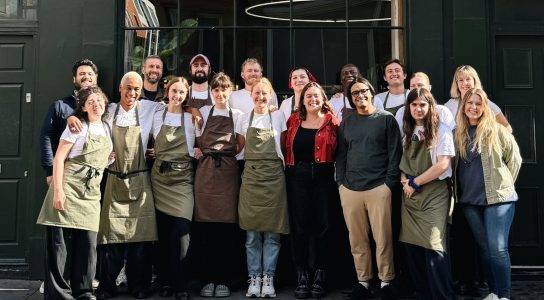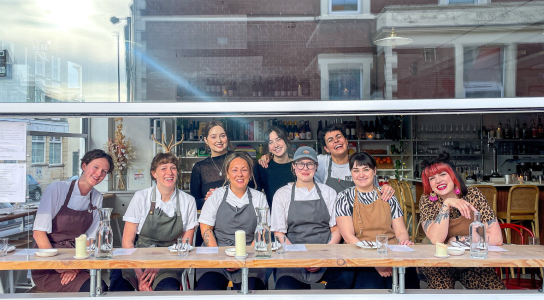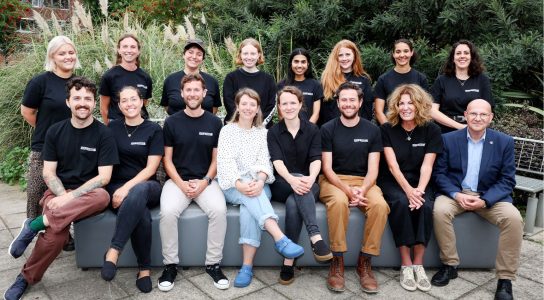8 Brilliant Ideas from CODE’s Happiest Places to Work 2024
Published 8 April 2025

Here are eight brilliant ideas from some of the businesses voted CODE’s Happiest Places To Work in 2024, in partnership with Planday. Some of them are quick fixes; others demand a longer view. Some might translate to your business; some won’t. But all have the potential to make changes that will have an impact on recruitment, staff retention, and satisfaction.
You can now register your company to take part in CODE’s Happiest Places to Work 2025
Give the team creative freedom like TOAD Bakery in Camberwell
“We know what it’s like to be in a place where you don’t have creative freedom but you’re itching to create,” says Oliver Costello, co-owner of TOAD Bakery. “I hated being in places where the menu didn’t change and you couldn’t create something new. You get a sense of whether an individual wants to create or and [if they can’t do so] eventually they’ll want to go somewhere else where they have more creative freedom. One of our bakers, Harvey, is a bread baker, but he wanted to experiment with things on the pastry side, so he created this amazing miso out of old bread, aged for six weeks, and turned it into a miso caramel custard tart and, with development, he put that on the menu. It was one of the best things we’ve ever made, I would say. One thing we really like to do –with permission obviously – is create collaborative posts on Instagram so anything we put on our Instagram that [our bakers] have created, they’ll always have that as a collaborative post showcasing them and TOAD equally.”
Ditch WhatsApp like Bubala in London
“I think it’s one of the best things we’ve done,” says Bubala founder Marc Summers. “It just means when people are off, they’re off. We now use an app called Blink, which holds all the information on the company and has a feed with notifications of what’s happening in the company, any updates to legislation. Everything you need for work is on that app. It has a do not disturb feature so you can turn notifications off every time you are away from the business. You use WhatsApp to speak to your friends and family so you’re not going to turn notifications off in case you miss something important, so if you have work on there too, you’re always going to be connected. I find WhatsApp stressful even without work on it! Other than emergencies, everything can be dealt with on site by people who are on shift and we’ve got a head office support team that can step in when needed.”

Adopt an 11pm curfew like Apricity in Mayfair
“The 9pm curfew in COVID was game-changing,” says Chantelle Nicholson, chef and founder of Apricity. “Quite often in restaurants, you’re waiting for one table which means 14 people can’t go home. It just doesn’t make sense financially or emotionally. Our 11pm curfew means all the staff are out of the restaurant by 12 and can get public transport home. They then have a longer period of rest before they’re back. We take our last booking at 9pm and on the odd occasion, maybe a Saturday night, the last table will leave just after 11pm. It’s a comfort thing for the team, knowing they’re never going to have a crazy, crazy late night. People’s habits have changed and 7pm is now the time everyone wants; they’re rushing to get trains home, especially Tuesday to Thursday. So the curfew doesn’t upset guests and it’s really helpful for the team. It’s a win win. It’s not something I would go back on, ever.”
Lend the space to team members for pop-ups and charity events like Cor in Bristol
“We encourage staff to use Cor for their own events,” says Cor co-owner Mark Chapman. “Firstly, so they can do their own charity or community events. Secondly, it’s to support their growth and ambition. The reason people get into hospitality is because they have a love and passion for it and they want to open their own wine bar or restaurant one day. It’s really hard for mid-level or senior chefs to get the space or the money to get started. We want to support them by letting them have the space free of charge or at a very low cost, to test their own menus, their own service style, their own recipes, everything. I don’t want to hold them back in their career; I want to help them as much as possible.

Introduce a profit share scheme like Honest Crust in Manchester.
“We were thinking of ways of doing performance-based bonuses and KPI-based bonuses just didn’t sit quite right with me. They just felt antithetical to what we’re trying to do with the business,” says Rich Carver of Honest Crust. “I wanted something that provided more transparency for the team and was a bit more egalitarian. If we were able to pay a bonus – which we haven’t always been able to – it would be the same rate for each hour that you worked whether you were a manager or a new member of staff. We started it in 2018, 2019, and everyone benefited nicely from it and it had a great impact. Obviously since then it’s been a bit patchy which is the frustration of it. We paid one out last year even though we just basically broke even, as even to get to break-even point, given where we were the year before, it felt like a great triumph and we wanted to share that with the team and for them to understand that their hard work made a difference.”
Take team members on educational trips abroad like Schofield’s Bar in Manchester
“We get a lot of opportunities to represent Schofield’s Bar around the world, part of that because of the recognition we have received being voted best bar in the country for the last three years either through Class or the UK’s Top 50 Bars,” says Joe Schofield. “We see it as a real bonus to our team for them to be able to take part in these activations where obviously costs are covered. We try and take every member on one trip per year. It’s not just about doing the event and showcasing our brand, it’s an education piece where our team members can see and understand a different way of operation in an award-winning bar as well as seeing a different part of the world that may inspire them through ingredients from the market or the culture of that market. When we’re there, we’ll always make sure to take them to a world-class restaurant and make sure they see world-class venues.”
Support parents and careers with flexible hours during school holidays like Chefs in Schools
“We introduced a four-day week initiative (during school summer holidays) in 2024 to support staff wellbeing – something that is really important to us at Chefs in Schools. This is traditionally a time where the services in our schools quieten down and therefore it felt like a good fit for many of our staff too,” says Alison McDade, Head of Finance and Systems at Chefs in Schools. “There were a few challenges around planning our activities over the reduced days but nothing we couldn’t overcome. The trial went so well that we’ve now made it a permanent initiative going forward. We think it’s something that will help us attract prospective employees to the world of school food.” The four-day week benefits all employees but has been particularly valued by parents and carers.

Offer a four-day week like the Empire Café in Leeds
“We did it initially coming out of lockdown when it was very difficult to attract new talent,” says Sam Pullan, co-founder of Empire Café in Leeds. “It was a new venture for us and we needed that point of difference. Operationally it works really well. We only open Wednesday to Sunday and it’s an all-day place – breakfast, lunch, and dinner – and I’d prefer people to be there all day rather than split across shifts across the week. The communication is far better. Everybody gets two days off together, Monday and Tuesday, and one more. They work a lot of hours like they do in our industry but they cram it into four days. I asked if they’d prefer five days and they’re like “no way!”. Closing Monday and Tuesday works for me, for my family. They’re days we can shut the shutters and no one’s in. If there’s a lightbulb gone, we deal with it on another day.”



